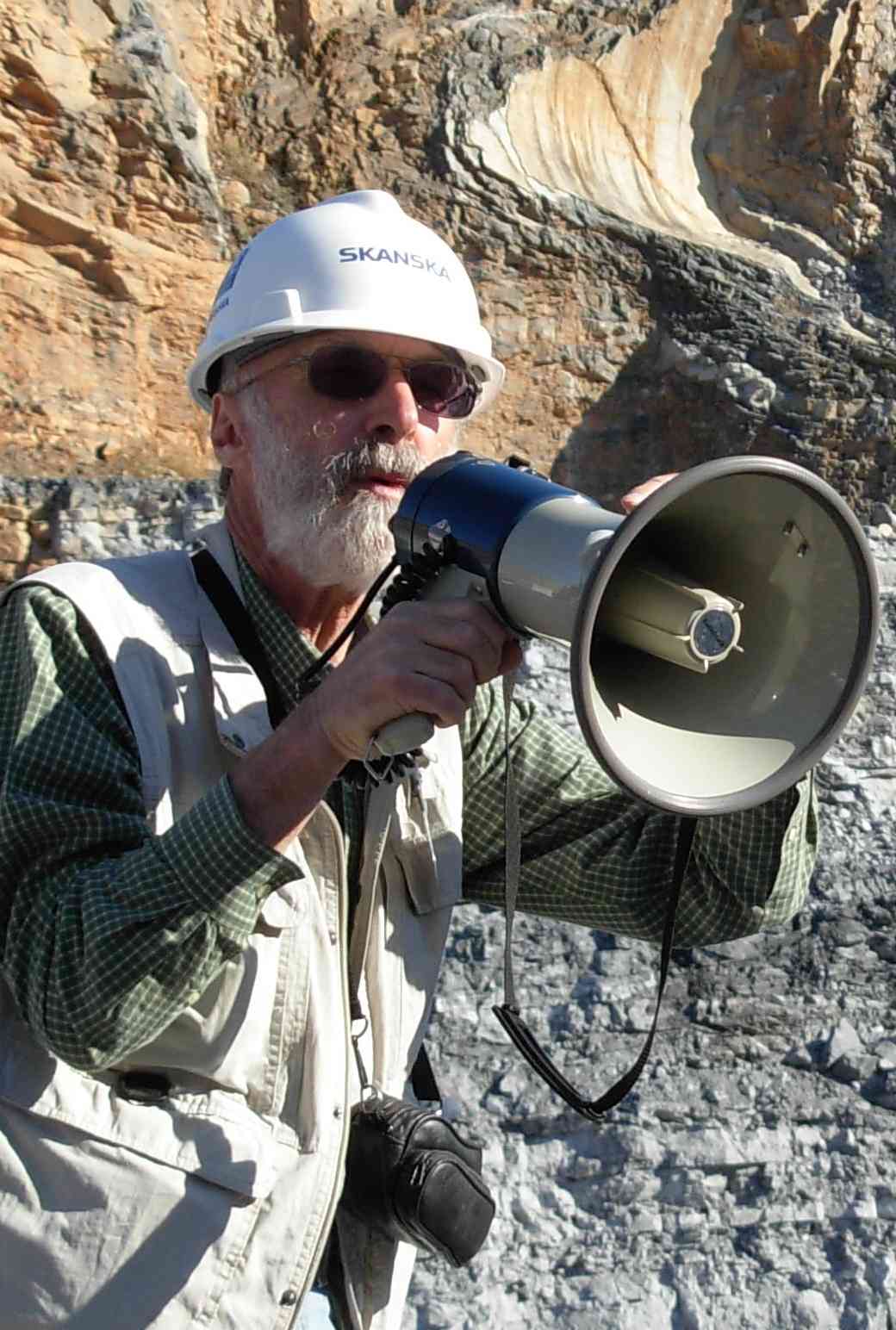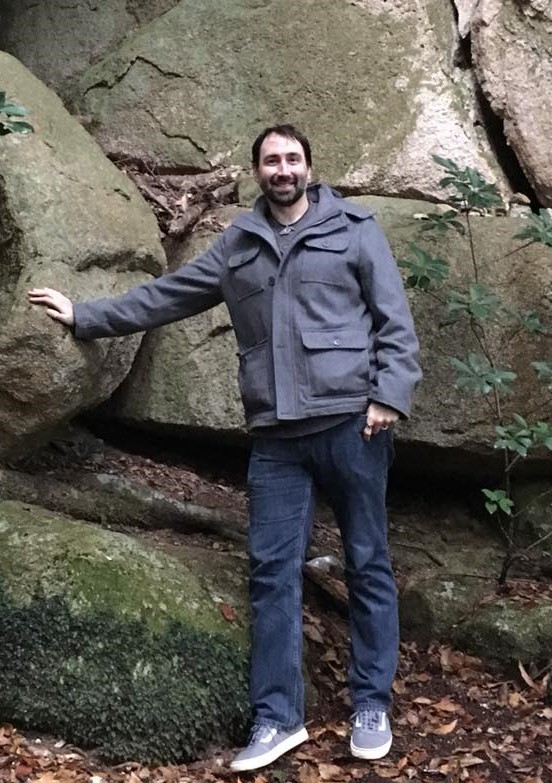Bachelor of Science with a Major in Earth and Environmental Sciences
Geology is the study of Earth including its structure, the materials of which it is composed and the processes that shape it. Geology is also concerned with the history of Earth and its life forms, the application of geologic knowledge to the search for natural resources, and understanding how humans interact with our physical environment. It is the study of rocks, minerals and water; of fossils, shorelines and mountains; of earthquakes, volcanoes and landslides. Although geology incorporates elements of chemistry, biology and physics it puts them together in a way that provides a unique framework for understanding planet earth. Consider the "Courses" tab to see what is required to graduate with a BS in Geology. For a minor, 15 credits of 3000 level or higher in geology is required.
For more information, please see the Academic Catalog. A program map, which provides a guide for students to plan their course of study, is available for download in the Courses tab below.
In Geology, you can choose to specialize in one of two concentrations. Each is targeted for particular goals and interests:
Professional Geology Concentration
Environmental Geology Concentration
Career Opportunities
Link to Additional Career Information:
https://www.buzzfile.com/Major/Geology.And.Earth-Science
External Resource
Program Location
Carrollton Campus
Method of Delivery
Face to Face
Accreditation
The University of West Georgia is accredited by The Southern Association of Colleges and Schools Commission on Colleges (SACSCOC).
Credit and transfer
Total semester hours required: 120
This program may be earned entirely face-to-face. However, depending on the courses chosen, a student may choose to take some partially or fully online courses.
Save money
UWG is often ranked as one of the most affordable accredited universities of its kind, regardless of the method of delivery chosen.
Details
- Total tuition costs and fees may vary, depending on the instructional method of the courses in which the student chooses to enroll.
- The more courses a student takes in a single term, the more they will typically save in fees and total cost.
- Face-to-face or partially online courses are charged at the general tuition rate and all mandatory campus fees, based on the student's residency (non-residents are charged at a higher rate).
- Fully or entirely online course tuition rates and fees my vary depending on the program. Students enrolled in exclusively online courses do not pay non-Resident rates.
- Together this means that GA residents pay about the same if they take all face-to-face or partially online courses as they do if they take only fully online courses exclusively; while non-residents save money by taking fully online courses.
- One word of caution: If a student takes a combination of face-to-face and online courses in a single term, he/she will pay both all mandatory campus fees and the higher eTuition rate.
- For cost information, as well as payment deadlines, see the Student Accounts and Billing Services website
There are a variety of financial assistance options for students, including scholarships and work study programs. Visit the Office of Financial Aid's website for more information.
Coursework
Geology core required of all majors
GEOL 3004 Field Geology
GEOL 3014 Mineralogy
GEOL 3024 Igneous/Metamorphic Petrology
GEOL 3034 Structural Geology
GEOL 3042 Optical Mineralogy
GEOL 3053 Sedimentary Petrology
GEOL 4082 Independent Research
GEOL 4084 Hydrogeology
GEOL 4501 Geology Seminar
GEOL 4604 Economic Geology
Professional Geology Concentration
CHEM 1212 Principles of Chemistry II (if not taken in core)
MATH 1634 (if not taken in core)
MATH 2644 (if not taken in core)
GEOL 2002 Applied Computing in Geosciences
GEOL 4014 Geochemistry
GEOL 4024 Paleontology
GEOL 4033 Stratigraphy and Geochronology
GEOL 4404 or 4084
Approved Electives
Environmental Geology Concentration
BIOL 1107+Lab (if not taken in core)
BIOL 1108+Lab (if not taken in core)
CHEM 1212 (if not taken in core)
GEOL 2002 Applied Computing in Geosciences
MATH 2063 Statistics
GEOL 4083 Environmental Geochemistry
GEOG 2553 Geographic Information Systems
Approved Electives
Downloads

Dave Bush, Ph.D.
Professor of Geology
Timothy M. Chowns, Ph.D.
Professor Emeritus of Geology
Brad Deline, Ph.D.
Professor of Geology
Randa Harris
Senior Lab Coordinator of Geology
Andrew Ivester, Ph.D.
Limited-term Instructor of Geography
Randal Kath, Ph.D.
Professor of Geology
Karen Tefend, Ph.D.
Professor & Program Coordinator of GeologyGuidelines for Admittance
Each UWG online degree program has specific requirements that you must meet in order to enroll.
- Complete online application. A one-time application fee of $40 is required.
- Official transcripts from all schools attended. Official transcripts are sent from a regionally or nationally accredited institution.
- Verify specific requirements associated with specific populations identified here: Freshman Adult Learners Transfer International Home School Joint / Dual Enrollment Transient Auditor Post-Baccalaureate Non-Degree Seeking Readmission
Application Deadlines
Undergraduate Priority Deadlines
Fall Semester - June 1
Spring Semester - November 15
Summer Semester - May 15
Admission Process Checklist
Check your Application Status
Contact
Contact the Office of Undergraduate Admissions for additional information.
Specific dates for Admissions (Undergraduate only), Financial Aid, Fee Payments, Registration, Start/End of term, Final Exams, etc. are available in THE SCOOP.
- Demonstrate understanding of the fundamental principles of the science of geology.
- Demonstrate ability to perform basic geologic field tasks including map reading/construction, field notebook composition, outcrop description, sampling, and surveying.
- Demonstrate ability to communicate geologic ideas in written format.
- Demonstrate ability to communicate geologic ideas in oral format.
- Participate in original scientific research.
